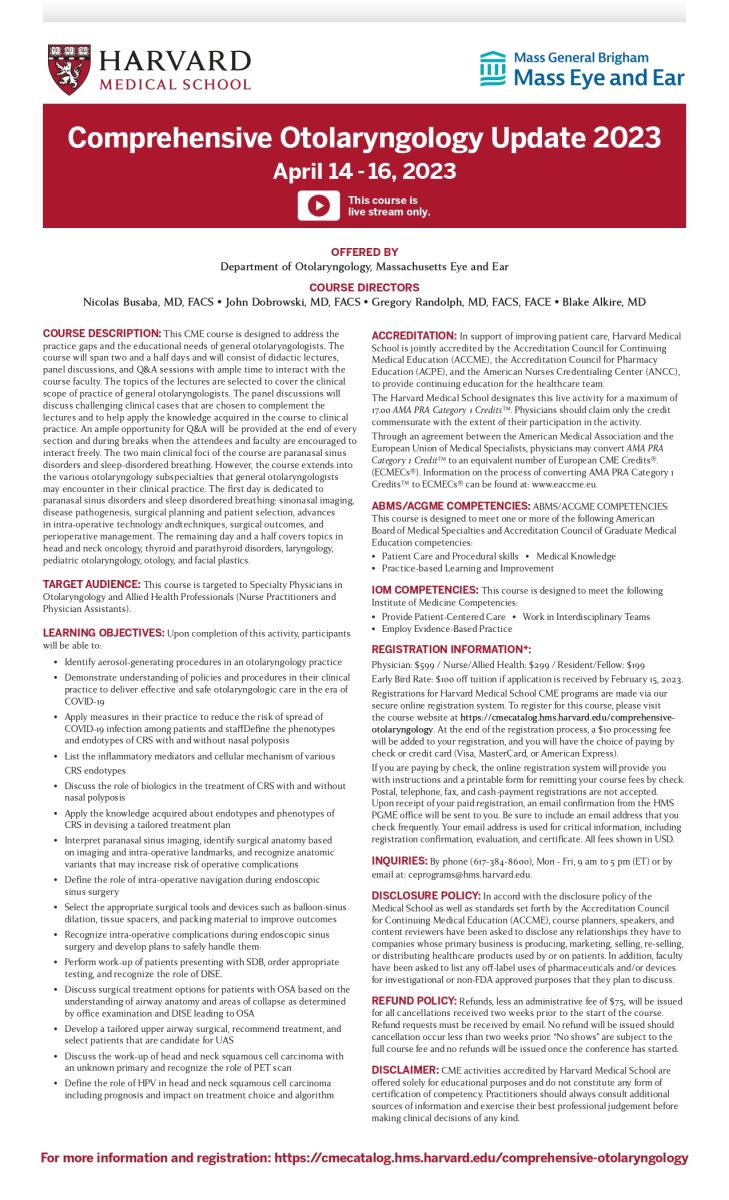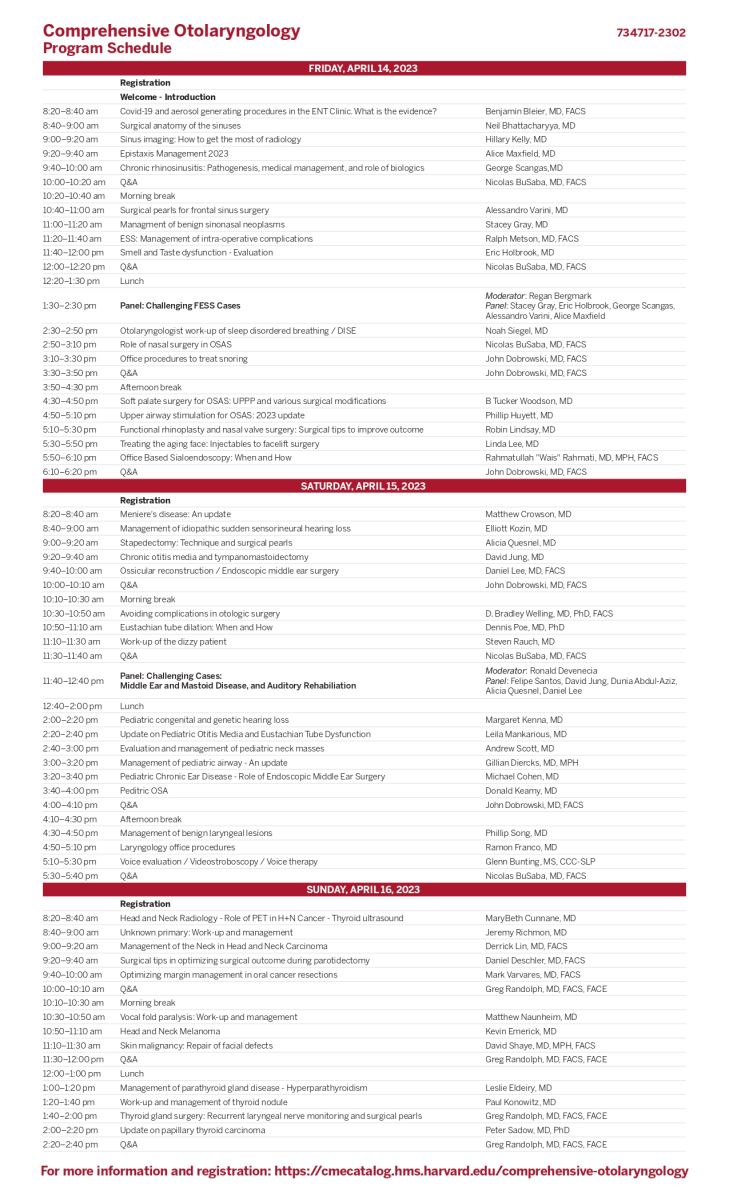Dear Colleague,
This CME course is designed to address the practice gaps and the educational needs of general otolaryngologists. The target audience are general otolaryngologists, otolaryngology physician assistants, otolaryngology nurse practitioners and otolaryngology residents and/or fellows. The course will span three days and consist of didactic lectures, panel discussions and Q&A sessions with ample time to virtually interact with the course faculty. The topics of the lectures are selected to cover the clinical scope of practice of general otolaryngologists. The panel discussions will discuss challenging clinical cases that are chosen to complement the lectures and to help apply the knowledge acquired in the course in the clinical practice. An ample opportunity for Q&A will be provided at the end of every session and during the end of panel discussion. Procedures and policies to optimize otolaryngology practice in the era of COVID-19 with a focus on patient and provider safety are offered. The two main clinical foci of the course are paranasal sinus disorders and sleep-disordered breathing. However, the course also broaches into the various otolaryngology subspecialties that a general otolaryngologist may encounter in his / her clinical practice: the first day is dedicated to paranasal sinus disorders and sleep disordered breathing. The remaining two days cover topics in head and neck oncology, thyroid and parathyroid disorders, laryngology, pediatric otolaryngology, otology and facial plastics. The course aims at addressing the pathogenesis, diagnosis, medical therapy and surgery for CRS.
The course then aims to build on the acquired knowledge of the pathogenesis of CRS to discuss the rationale for the various medical therapies including biologics. In addition, the course addresses sinonasal imaging, focusing on the surgical anatomy, radiologic findings in various sinonasal disorders and the utility of imaging in surgical planning and minimizing surgical complications.The course will also address knowledge gaps pertaining to endoscopic sinus surgery (ESS) such as surgical anatomy, surgical pearls to minimize complications while achieving a high surgical cure, newer intra-operative technologies to improve surgical outcomes, balloon sinuplasty, newer packing materials and drug-eluting stents, as well as the role and risk of revision ESS. In addition, the expanded indications for ESS to include skull base surgery for CSF rhinorrhea, skull base neoplasms, approach to pituitary and other intracranial neoplasms will be discussed.
The course will also address the work-up and management of sleep-disordered breathing (SDB) focusing on practice and knowledge gaps such as the role of imaging and drug-induced sleep endoscopy in the work-up of these patients, indications and roles of home and in-the-laboratory polysmnography, and advances in the surgical management of SDB. The surgical techniques to be discussed include office procedures in addition to uvulopalatopharyngoplasty and its various surgical modifications, tongue base reduction, tongue base advancement and robot-assisted lingual tonsillectomy / tongue base reduction with emphasis on patient selection, surgical success, morbidity and postoperative care. The course will also address learning gaps pertaining to the role of HPV in the pathogenesis of head and neck cancer, the role of PET CT, management of neck metastasis, thyroid and parathyroid disorders, voice disorders, basic otology (middle ear mechanics, middle ear surgery, hearing rehabilitation and advances in the management of idiopathic sudden sensorineural hearing loss), pediatric otolaryngology (including sleep, neck masses, vascular malformation, chronic otitis media and pediatric airway) and facial plastics (aging face, soft tissue fillers and botox).
|

